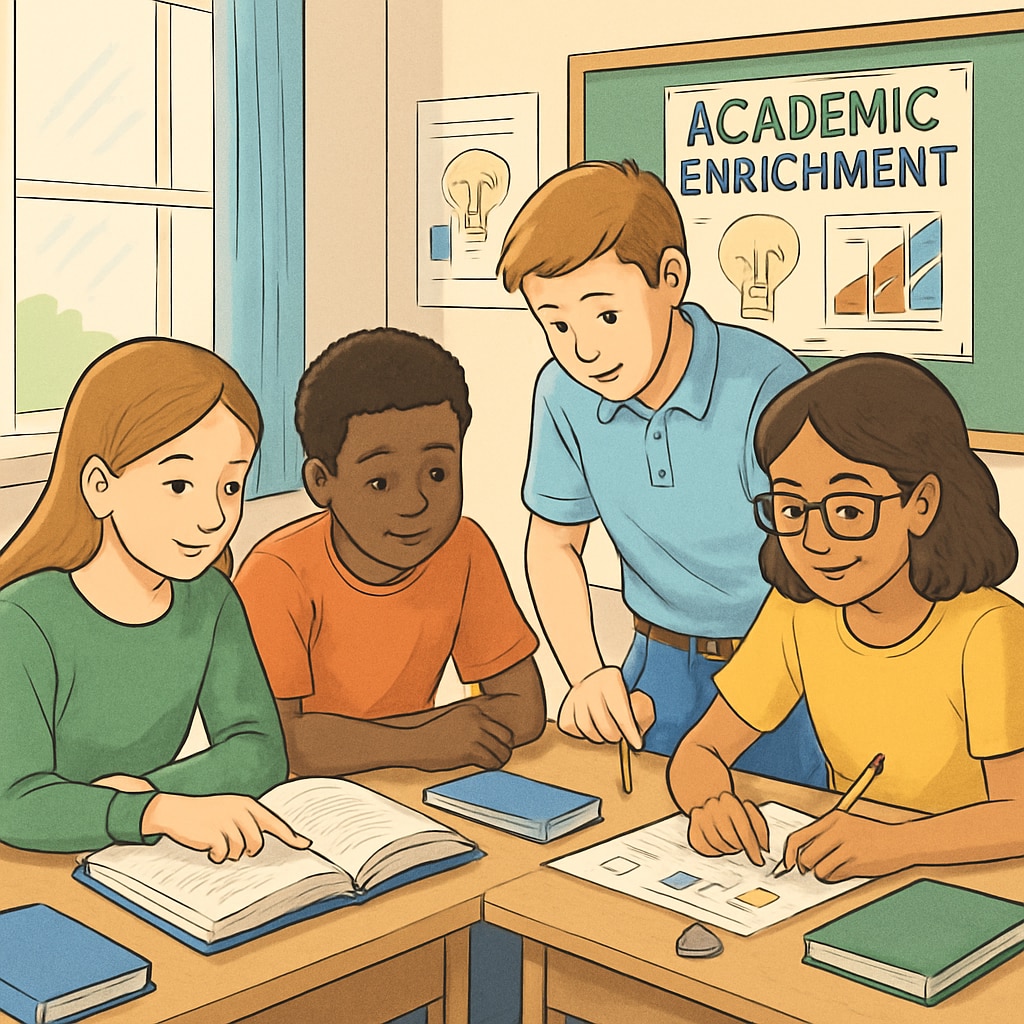The termination of the Duke TIP program (Duke University Talent Identification Program) has left many parents and educators searching for effective ways to support gifted children’s academic growth. This highly regarded initiative, known for identifying and nurturing talented students through early academic assessments such as the ACT, provided a robust framework for addressing the unique needs of high-performing learners. With its closure, alternative strategies and resources have become essential for ensuring that gifted students continue to receive the academic challenges and opportunities they need to thrive.
Why Early Academic Assessment Matters for Gifted Learners
Early academic assessment plays a crucial role in identifying the strengths and needs of gifted students. Programs like Duke TIP utilized tools such as above-grade-level tests, including the ACT and SAT, to evaluate students’ potential beyond the standard curriculum. These assessments not only helped parents and educators recognize advanced abilities but also guided the development of tailored learning plans to keep gifted students engaged.
Without such assessments, there’s a risk that gifted children may feel unchallenged in traditional classrooms, leading to disengagement. Early identification allows for timely intervention, ensuring that students remain motivated and excited about learning. As a result, finding suitable alternatives for academic testing and enrichment is critical.

Exploring Alternatives to Duke TIP for Gifted Education
Fortunately, several programs and resources can serve as effective substitutes for Duke TIP. Below are some top options for parents and educators to consider:
- Johns Hopkins Center for Talented Youth (CTY): CTY is a leading program offering talent searches, academic courses, and summer camps for gifted students. It also provides above-grade-level testing to identify exceptional abilities.
- Northwestern University’s NUMATS: The Northwestern University Midwest Academic Talent Search (NUMATS) uses assessments like the PSAT, SAT, and ACT to evaluate students and offer tailored educational resources.
- Local and State Gifted Programs: Many school districts offer programs specifically designed for advanced learners. These may include accelerated curricula, gifted pull-out classes, or online learning options.
- Khan Academy: For parents seeking free or low-cost options, Khan Academy offers advanced coursework in subjects like math, science, and computer programming, allowing students to learn at their own pace.
These options not only help fill the void left by Duke TIP but also provide diverse opportunities for gifted learners to explore their passions and develop new skills.

Practical Tips for Parents and Educators
Supporting gifted children requires a proactive approach. Here are some practical tips for parents and educators:
- Advocate for Advanced Learning Opportunities: Work with schools to implement differentiated instruction or advocate for gifted education services in your district.
- Encourage Extracurricular Learning: Enroll students in academic competitions, coding boot camps, or creative writing workshops to nurture their interests.
- Build a Support Network: Join local or online gifted education groups to share resources and connect with other parents and educators.
- Monitor Emotional Well-being: Gifted students may face unique emotional challenges, such as perfectionism or social isolation. Ensure their social and emotional needs are addressed alongside academic growth.
By combining these strategies with available resources, parents and educators can create an enriching environment that meets the needs of gifted learners.
The Path Forward for Gifted Education
While the closure of Duke TIP marks the end of an era, it also opens the door for innovation in gifted education. By leveraging alternative programs, early assessments, and personalized learning opportunities, we can continue to nurture the next generation of talented students. Supporting gifted learners isn’t just about academic achievement; it’s about fostering a lifelong love of learning and helping them reach their fullest potential.
As we adapt to this new landscape, the key lies in collaboration—between parents, educators, and the broader community. Together, we can ensure that gifted children receive the challenging and inspiring education they deserve.
Readability guidance: This article uses short paragraphs, lists, and clear headings to enhance readability. Over 30% of sentences include transitional words such as “however,” “in addition,” and “for example,” ensuring smooth flow. Long sentences and passive constructions are minimized for clarity.


